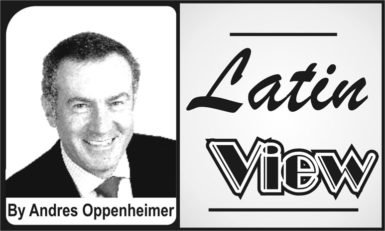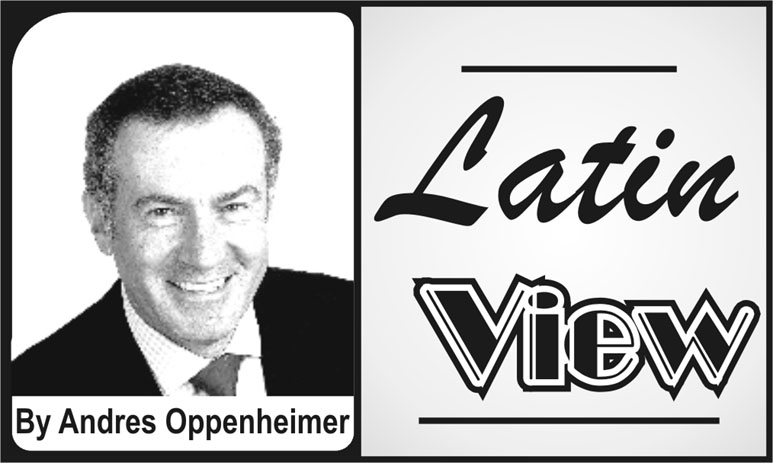Venezuela’s political crisis is escalating rapidly following the impressive opposition-organized vote against President Nicolas Maduro’s plan to impose a Cuba-style constitution, and after President Donald Trump’s threat to take “strong and swift economic actions” against the Venezuelan regime.
 An estimated 100 people have already died in recent protests against the Maduro regime. And the death toll may escalate as Maduro vows to go ahead with his plan to convene a Constituent Assembly with hand-picked delegates on July 30 to change the constitution. If that happens, Maduro would close down the opposition majority National Assembly, which was democratically elected in 2015.
An estimated 100 people have already died in recent protests against the Maduro regime. And the death toll may escalate as Maduro vows to go ahead with his plan to convene a Constituent Assembly with hand-picked delegates on July 30 to change the constitution. If that happens, Maduro would close down the opposition majority National Assembly, which was democratically elected in 2015.
What could happen after that? There are four possible scenarios:
—The Nicaragua scenario: a relatively peaceful democratic outcome. Following the massive July 16 vote in which more than 7 million Venezuelans voted against Maduro’s plan to change the constitution, the international community steps up its pressure on the Venezuelan regime.
Most major Latin American countries, the European Union and the United States make a joint announcement that they will not recognise any Venezuelan government coming out of an illegitimate Constituent Assembly, and that they will condition all future oil contracts with Venezuela on the approval of that country’s existing National Assembly.
Bowing to mounting international and domestic pressures — and after receiving assurances that he and his top aides will be protected from prosecution — Maduro announces that he will cancel the July 30 Constituent Assembly vote and hold internationally supervised free elections next year.
Much like in Nicaragua’s 1990 elections, the opposition wins, and top Chavista officials go safely to their homes or into exile with no further bloodshed.
—The Egyptian scenario: a military coup. Maduro goes ahead with his plan to replace the constitution and close down the opposition-led National Assembly. Running out of options, the National Assembly — as the only democratically elected branch of government left in the country — appoints a “legitimate” parallel government.
There is an escalation of violence. Maduro’s National Guard can’t control the crowds, and Maduro calls in the army. A top military leader declines to shoot at protesters, orders Maduro arrested on charges of violating the constitution, announces creation of a provisional government and vows to hold a free election in six months.
That’s what Egypt’s army chief Gen Abdel Fattah el-Sisi did in Egypt in 2013. He later consolidated his military power, ran for president a year later, and won a dubious election.
A variation of this scenario would be a military leader who keeps his promise and holds free elections in which he’s not a candidate, but examples of that are scarce.
—The Cuban scenario: the consolidation of a Maduro dictatorship. Maduro imposes his Cuba-style constitution, the Trump administration announces an oil embargo on Venezuela, the country descends into a full-blown humanitarian crisis and hundreds of thousands of additional Venezuelan refugees flock to Colombia, Panama and other countries.
Venezuela becomes a new Cuba, with an increasingly impoverished population and a ruling elite supported by Russia and China.
—The Libyan or Syrian scenarios: Maduro imposes his totalitarian constitution, and some regional military commanders rise up against the central government. The country becomes fragmented, and Venezuela slides into a civil war.
Mark Schneider, a senior analyst with the Center of Strategic and International Studies in Washington, DC, says Venezuela’s future will pretty much depend on whether Maduro is allowed to go ahead with his plans to hold a fake July 30 election for a Constituent Assembly and change the constitution.
To avoid any of the worst-case scenarios, “it’s essential that the international community mounts a unified campaign, fully clarifying that they will not recognize any government coming out of Maduro’s illegitimate Constituent Assembly,” Schneider told me.
My opinion: I agree. All Venezuelan scenarios are bad, but the least catastrophic would be one that resembles Nicaragua’s 1990 elections, in which Maduro would be forced by international and domestic pressures to hold free elections with impartial electoral authorities.
On the other hand, if Maduro is allowed to go ahead with his plan for a new constitution, we are likely to see more deterioration in Venezuela and a lot more violence.









